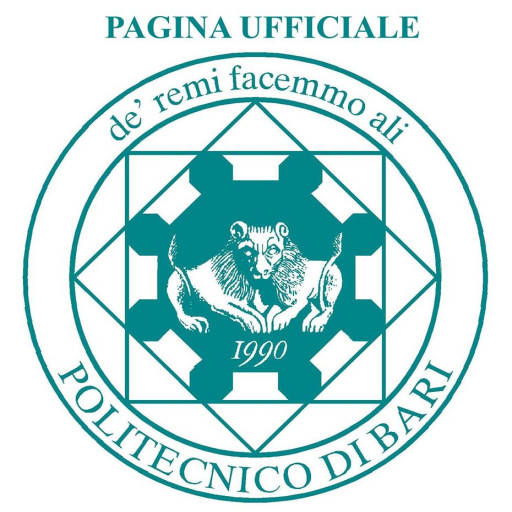Photos of university / #rmituniversity
The Bachelor of Engineering (Sustainable Systems Engineering) at RMIT University is a comprehensive undergraduate program designed to equip students with the knowledge and skills necessary to develop innovative engineering solutions that promote sustainability and environmental stewardship. This degree prepares graduates to address complex challenges related to sustainable development, resource management, and ecological responsibility across various engineering disciplines. The curriculum integrates core engineering principles with specialized topics in sustainable systems, including renewable energy, environmental management, lifecycle assessment, and sustainable design practices. Throughout the course, students engage in practical learning through laboratory work, industry placements, and project-based assessments, enabling them to apply theoretical concepts to real-world scenarios. RMIT’s focus on multidisciplinary learning encourages students to collaborate across engineering disciplines and develop holistic solutions that balance economic, social, and environmental factors. The program also emphasizes the importance of ethical engineering practices, innovation, and lifelong learning to ensure graduates are adaptable in a rapidly evolving technological landscape. Upon completion, graduates are well-prepared for careers in sustainable engineering roles in industries such as renewable energy, environmental consultancy, infrastructure development, and government agencies. The program aims to foster a generation of engineers committed to creating sustainable and resilient systems that contribute positively to society and the planet.
This program is provisionally accredited by Engineers Australia. Total accreditation will be sought with this particular program just as it's feasible to do so within the certification timelines set by Engineers Australia. Once it's fully licensed, graduates of this application will qualify for graduate membership of Engineers Australia. Australia is among 15 countries that are signatories to the International Engineering Alliance, also known as the Washington Accord, to get professional engineers. Up on full certification of this program, pupils can have their eligibility recognised in most of 18 countries that are signatories to the Accord, giving you the possibility to work in states like the USA, UK, China, New Zealand, Japan, Korea and Singapore.
- Present Year 12 requisite units 3 and also 4-a study score of at least 25 in one of Mathematical techniques (almost some other ) or Specialist Mathematics
- Plus also a study score of at least 25 in any English (except EAL) or at the least 30 in English (EAL).
The financing studies for the Bachelor of Sustainable Systems Engineering and Bachelor of Industrial Design at the Royal Melbourne Institute of Technology (RMIT) are designed to support students throughout their academic journey, ensuring affordability and access to quality education. The program falls under the Australian Higher Education system, where tuition fees are set annually and can vary based on the student's residency status. International students are required to pay full tuition fees, which are higher than those paid by domestic students who may benefit from government subsidies.
For domestic students, financing options include government supported loans such as HECS-HELP, which allows eligible students to defer their tuition fees until they are earning an income above the compulsory repayment threshold. This federal loan scheme makes higher education more accessible by reducing the upfront financial burden. Additionally, students can access a range of scholarships offered by RMIT University based on academic merit, financial need, or specific criteria related to the program or student background. These scholarships can significantly offset tuition costs and may also cover other expenses such as textbooks, materials, or living costs.
International students are generally expected to pay tuition fees in advance, with payment schedules typically divided into a few installments per semester. RMIT offers various payment plans and financial counseling services to assist students in managing their tuition obligations. Moreover, students are encouraged to explore external sources of financial support, including government grants, private bursaries, or educational loans available in their home countries.
Apart from tuition fees, students should also account for costs related to study materials, equipment, and possibly internship placements or fieldwork, which might incur additional expenses. RMIT provides resources and guidance on budgeting and financial planning to help students prepare for their educational expenses effectively.
In summary, the financing of these programs is supported by a combination of government loans, university scholarships, and personal or family funds. The structure and availability of financial aid are designed to promote equitable access to the high-quality education provided through RMIT’s innovative degree offerings in Sustainable Systems Engineering and Industrial Design.
The Sustainable Systems Engineering program at the Royal Melbourne Institute of Technology (RMIT) is designed to prepare students to tackle complex environmental and engineering challenges through innovative solutions. This degree focuses on the development of sustainable systems that integrate environmental considerations with technological and engineering principles. The curriculum encompasses a wide range of subjects, including renewable energy, resource management, environmental impact assessment, lifecycle analysis, and sustainable design practices. Students gain practical skills through industry-based projects, laboratories, and internships, which facilitate real-world experience and enhance employability upon graduation.
The program emphasizes interdisciplinary learning, combining principles from engineering, environmental science, and business management to produce versatile graduates capable of leading sustainable initiatives in various sectors such as manufacturing, energy, transportation, and urban planning. Courses are designed to foster critical thinking, problem-solving, and collaboration with industry partners to develop scalable and sustainable solutions. The program also incorporates emerging technologies including smart systems, green buildings, and low-impact manufacturing processes.
Students have access to state-of-the-art facilities and participate in research projects that focus on innovation in sustainability. The university maintains strong links with industry stakeholders, enabling students to engage with real-world challenges and contribute to community and industry-led projects. Graduates of the program are equipped to work in roles such as sustainability consultant, environmental engineer, systems analyst, or project manager in organizations committed to sustainable development. Overall, RMIT’s Sustainable Systems Engineering program aims to cultivate professionals who are dedicated to creating environmentally responsible solutions that meet current needs without compromising future generations.
The program duration typically spans three years for undergraduate students, and it offers flexible learning options, including full-time, part-time, and online study modes to accommodate diverse student needs. To provide a comprehensive education, the program integrates coursework, research opportunities, and industry engagement, ensuring graduates are well-prepared to contribute meaningfully to the evolving field of sustainable engineering.










